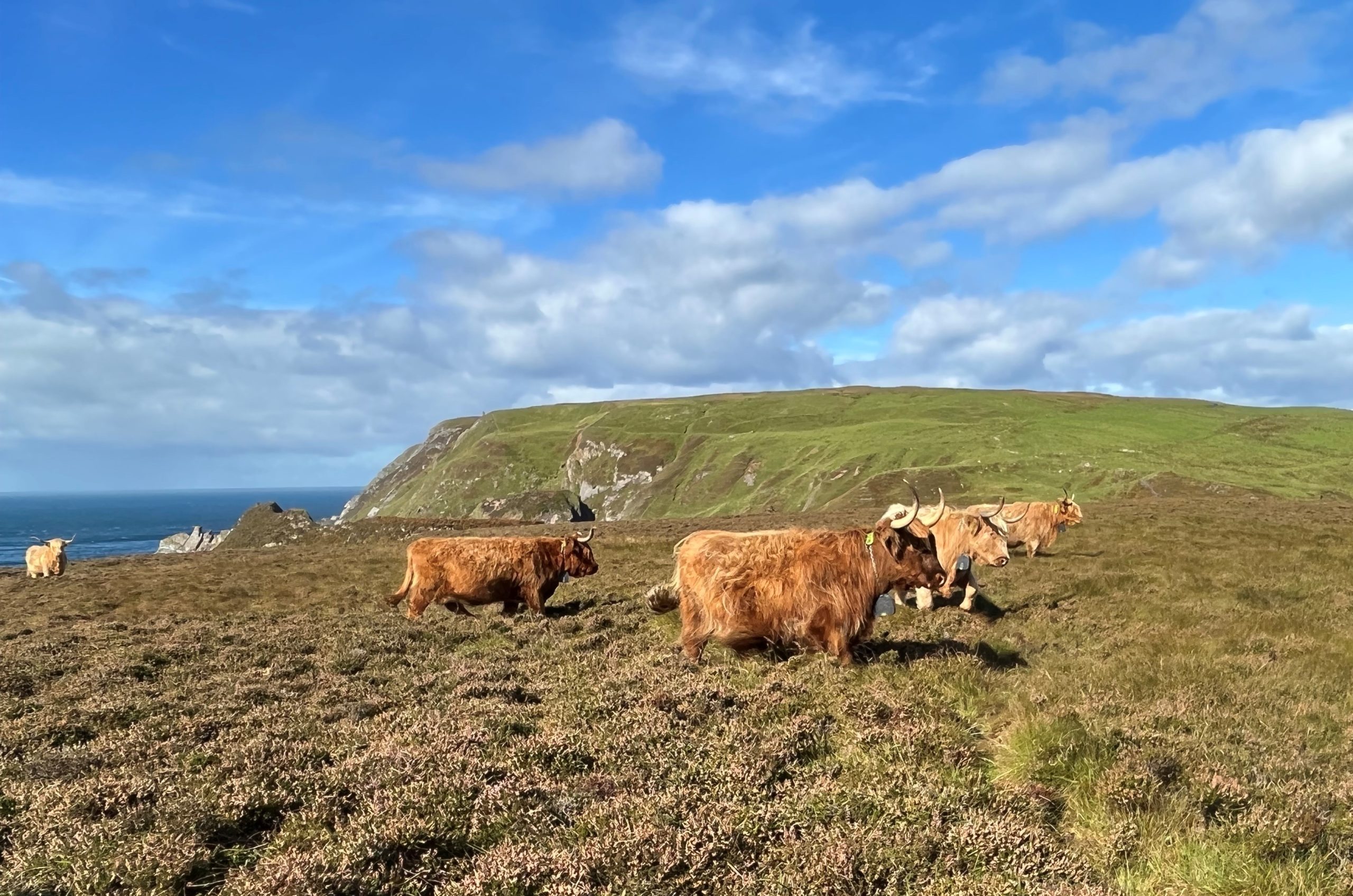Routinely treating sheep and cattle for liver fluke has led to overuse of treatments, increased resistance and costs to farmers and the environment which could be avoided through testing.
A seasonal study carried out on Islay, has demonstrated that treating ‘as little as possible, but as much as necessary’, can deliver win-wins for animal and environmental health.
The fourth in a series of case studies, developed as part of the RHASS Presidential Initiative (PI), exploring the science behind food and drink production, will look at how a collaboration between Moredun Research Institute, Elanco Animal Health, RSPB and Islay farmers has come up with a plan to boost animal welfare, reduce flukicide resistance, improve soil health and help promote local wildlife populations.
Monthly monitoring of blood and faecal samples from a select group of animals found that timing of liver fluke infection has changed, in part due to changes in weather patterns, yet many farmers are prophylactically treating their livestock with flukicides, unnecessarily. This is leading to increased resistance to the few working products left in a veterinary toolkit and leaching of chemicals into surrounding soil and dung, which has the potential to impact on wildlife.
One of the farmers involved in the study, Stuart Lamont, had been routinely treating his sheep at set times of year, but since his results showed very low levels of fluke in the summer and autumn, he was advised not to treat until January. He has since moved to a testing over treating programme.
“By listening to the science, we have been able to make informed decisions about when to treat our livestock, which has led to benefits for animal welfare, as well as significant chemical savings.
“I’m now not having to unnecessarily handle my sheep to run them through a race every six weeks and by treating more sparingly, it means the products are more likely to work when we need to use them.”
Moredun Parasitologist, Philip Skuce, added that there is a careful balance to be struck between responsible treatment and conserving biodiversity on farm.
“On Islay, we were looking at how we could ensure optimal treatment for livestock whilst also addressing issues around product resistance, improving soil health, and supporting local wildlife,” said Philip. “The role of science is so important to provide evidence to back up what you are doing is safe and healthy.
“There is increasing pressure on the agricultural industry to reduce chemical usage and the most simple and effective way to do this is to ‘test, don’t guess’ and with patterns of parasite epidemiology shifting, more than ever scientists need to be monitoring these changes and bringing farmers along with us.”
Commenting on the work, and why the RHASS Presidential Initiative to highlight the work on animal and environmental health, RHASS President Ian Duncan-Miller said,
“The application of science to an everyday problem on Islay has shown a quite remarkable breadth and diversity of gains, and shows how really understanding the long-standing challenges will lead to benefits across the board.
“On a wildlife reserve, the priority is obviously the naturally occurring creatures, and this research has demonstrated the importance of science around the grazing livestock to the plants and other animals.”
For more information on this year’s Initiative and to access past and future case studies, please visit: https://rhass.org.uk/presidential-initiative/https://rhass.org.uk/presidential-initiative/

